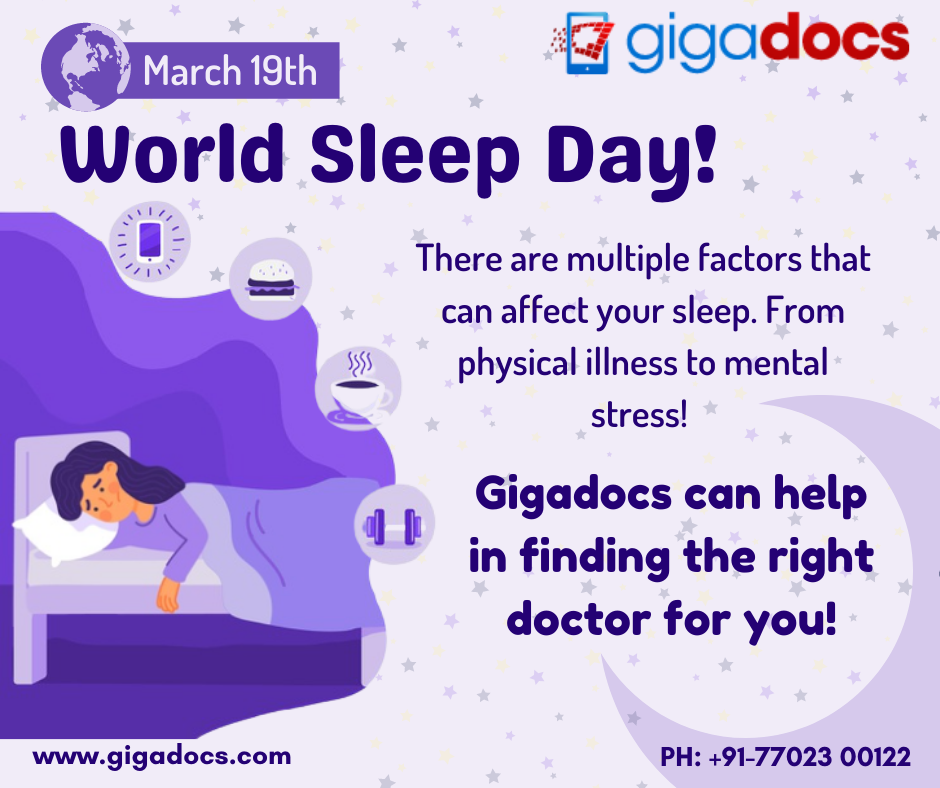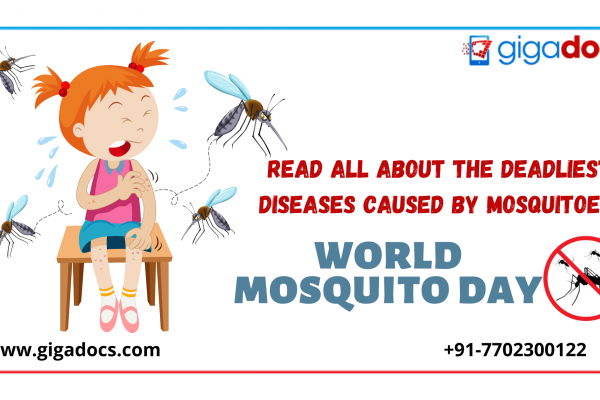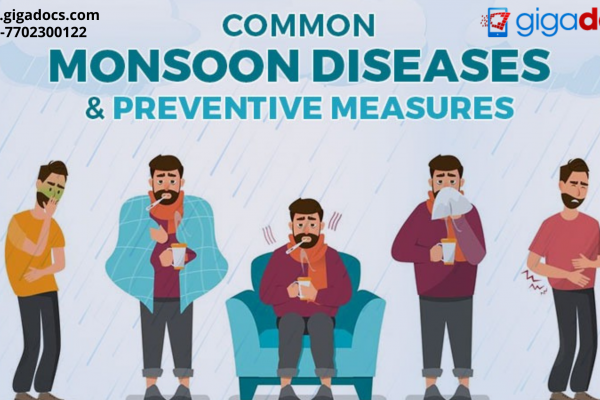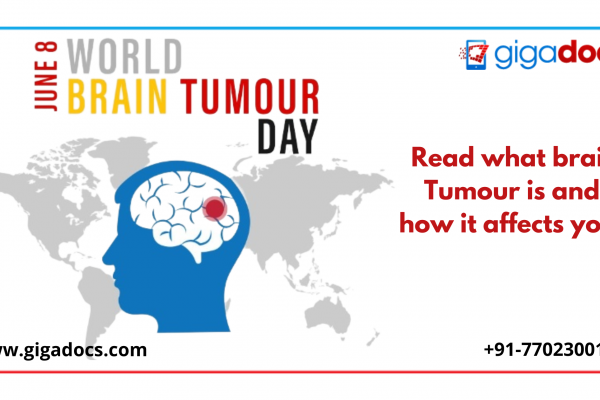Almost everyone has experienced a zombie-like feeling- tired during the day, lack of energy, with an irritable mood after just one night of lack of sleep.
One in every three of us suffers from sleep deprivation. According to the Neurological Society of India, insomnia affects almost 10% of the population at any given time. Sleep is important for our health and longevity. To observe the importance of sleep and wellbeing, 19th. March is observed as World Sleep Day. Ever wondered how sleep or the lack of it impacts us?
Sleep deprivation has a direct effect on how we think and feel. While the short-term consequences are more noticeable, chronic sleep deprivation can multiply the risk of physical and mental health problems in the longer term.
Understanding sleep deprivation, including its causes, symptoms, diagnosis, and treatment, can make you aware of why sleep is so important in our lives. Let us have a detailed look in the following sections-
Consequences of Sleep Deprivation
For our body to repair against regular wear and tear we need about eight hours of sleep. If you wake up being tired, with mood swings this could be a warning sign that you are not getting your sleep. Besides, short temper, lack of focus, and fatigue may be quite common across people who often follow a poor night’s sleep.
Though an occasional late-night makes you feel tired it won’t harm your health. Trouble arises after many sleepless nights, as the mental effects become more severe.
Your mind may lose its judgment capability, fog up, and lost its power to make wise decisions. This leaves you susceptible to making mistakes at home and at work. In addition, you may also increase your chances of a road accident while driving.
Types of Sleep Deprivation
The categories of sleep deprivation and sleep insufficiency as under-
- Acute sleep deprivation: Lasts a brief period, usually for a few days.
- Chronic sleep deprivation: The duration of chronic sleep deprivation (or insufficient sleep syndrome) is three months or longer.
- Chronic sleep deficiency or insufficient sleep: Chronic sleep deficiency lasts more than three months. It is an ongoing sleep deprivation triggered by sleep fragmentation or other disruptions.
Causes of Sleep Deprivation?
Sleep deprivation can be the result of many factors, like work obligations, medical conditions, poor sleep hygiene, and lifestyle choices. Let’s find out more about them-
- Watching TV/ Digital platforms/ Surfing social media- Voluntary choices restrict sleep time. If you choose to binge watch that favourite series, you may risk your sleep and be sleep deprived.
- Work Stress- Another common cause of sleep deprivation is work especially work from home as a Covid after effect. People who work multiple jobs or long hours may not have enough time to sleep, which is particularly true for shift workers working at odd shifts, generally during the nights.
- Medical Conditions- Certain medical conditions can cause a lack of sleep. Sleep apnoea, a breathing disorder, for example, can impair both sleep duration and quality. Other health issues that include pain or a general anxiety disorder can disrupt the quality and quantity of sleep.
Symptoms of Sleep Deprivation
A person’s sleep deprivation symptoms depend on the duration of their lack of sleep and whether they have acute or chronic insomnia. Inadequate sleep can have a direct impact on how a person feels when they are awake. Some symptoms of sleep deprivation include:
- Worsened memory.
- Slowed thinking.
- Poor or risky decision-making.
- Lack of energy.
- Reduced attention span.
- Mood changes, the feeling of anxiety, or irritability.
To compensate for your sleep loss, begin by adding an extra hour or two of sleep per night on weekends. Go to bed at a fixed time and let your body wake you up in the morning without any alarm clock!
Diseases caused by Sleep Deprivation.
Here are the diseases you may invite due to your lack of sleep:
- Cardiovascular disease: Sleep deprivation aggravates cardiovascular problems such as hypertension, coronary heart disease, heart attack, and stroke.
- Diabetes: Inadequate sleep appears to hinder the body’s ability to regulate blood sugar, increasing the risk of metabolic conditions like diabetes.
- Obesity: Research has found that when people don’t get enough sleep, they tend to consume more calories, contributing to their obesity.
- Immunodeficiency: Sleep deprivation may impair immune function, including slow vaccine response.
- Hormonal imbalances: Sleep helps the body to produce and regulate various hormone levels that aid wellness. Lack of sleep adversely impacts this hormonal balance.
- Muscular and Joint Pain: Those who are sleep deprived are more likely to develop muscular and joint pain since their bodies cannot repair themselves during sleep.
- Sleep and mental health: Lack of sleep may lead to anxiety, depression, and bipolar disorder symptoms
Sleep deprivation can be dangerous. Chronic lack of sleep may lead to a higher overall risk of death and severely impair life quality.
Treating Sleep Deprivation with Gigadocs
If you have a sleep disorder or get trouble sleeping, don’t take it lightly, maintain fixed sleep times, and avoid caffeine-based drinks before bed, that deprives you of sleep.
If your sleep deprivation is chronic, reach out to specialist doctors on the Gigadocs app. Doctors can diagnose sleep deprivation by discussing your symptoms and sleep patterns. They may prescribe sleep meditation and additional sleep tracking tests like actigraphy. To know more about actigraphy and how severe is your sleep deprivation, download the Gigadocs app and consult specialist doctors on a phone or a video call at a time convenient to you, from the privacy of your home.
Book a Virtual Consultation- Download Gigadocs app from-
- IOS App – apple.co/2W2iG4V
- Android App – bit.ly/33AQoRC
Learn about Virtual Consultation, to schedule a demo, e-mail us at info@gigadocs.com




